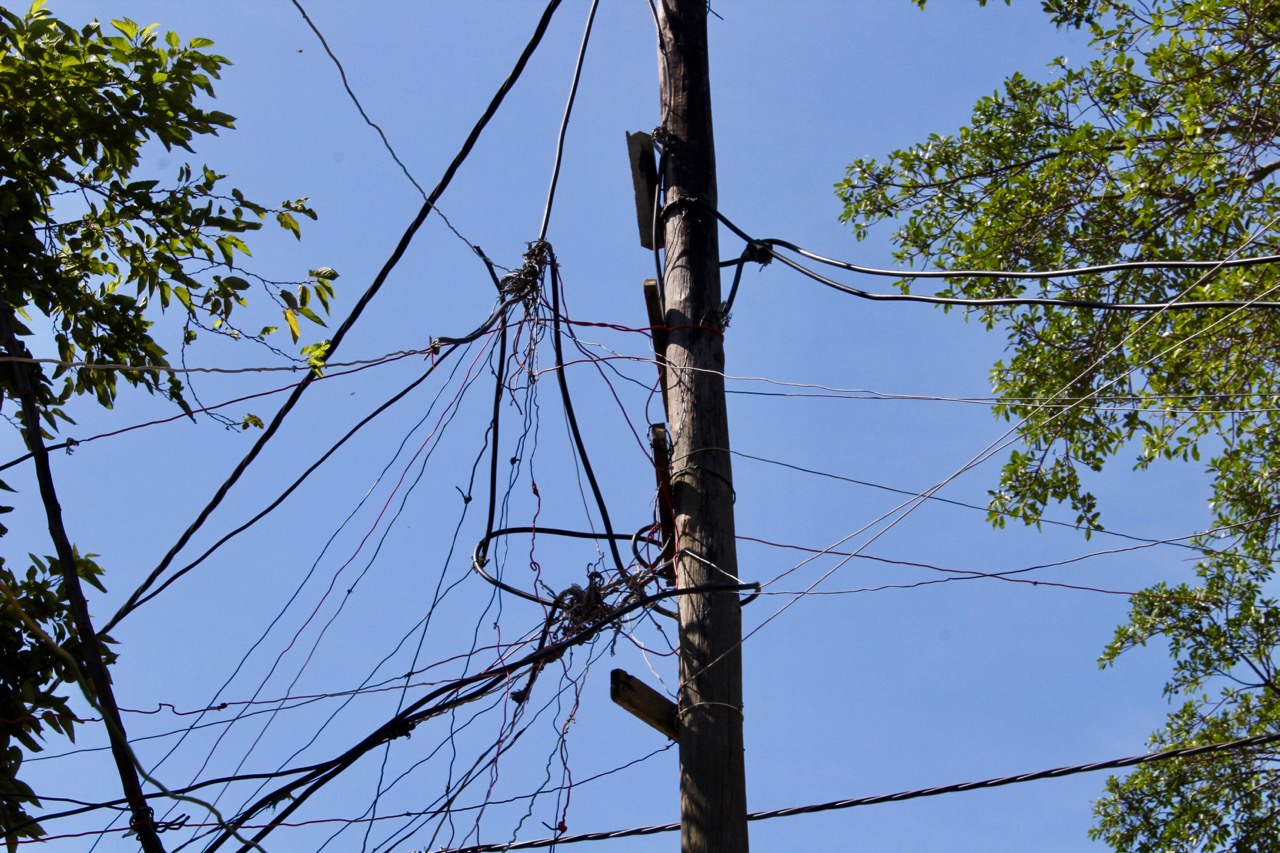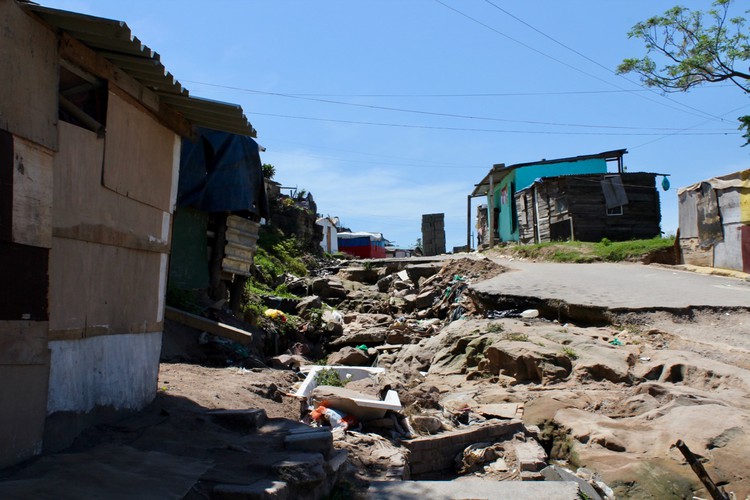No electricity delivery, so illegal suppliers thrive
“It is clear that all basic services are in our hands and not the relevant people”
Illegal electricity has become a booming business in the informal settlement of Bottlebrush, Chatsworth. Residents are charged by local connectors up to R280 a month to access power. The amount charged depends on the connector.
Although residents we spoke to believe they pay far too much, they have been left with no choice as hopes to get legal electricity seem faint, having been denied electricity by Eskom and eThekwini Municipality since the settlement’s inception 15 years ago.
Bottlebrush is home to over 10,000 people. The illegal electrical wires, strung over poles made from planks, crisscross above the shacks as they run to different households.
Noncebo Mtolo, who has lived in the area for nine years, said electricity is a basic essential for any household. “It was after two years of living without electricity that we realised we were not going to get power from Eskom. We had seen no efforts made by our local councillor nor the municipality … When we saw many homes lighting up at night and enjoying the privilege of electricity, we then decided to also get connected.”
Some homes have satellite dishes.
She said that charges for a connection ranged from R180 to R280 per month. If the family fails to make a payment, the electricity is immediately cut. “It’s non-negotiable. When you do not pay, you get no lights. I have six children and at times, it is hard to get by, but harder without electricity,” said Mtolo.
Each section of Bottlebrush has at least one tap and two communal toilets. The road entering the community was swept away by heavy rains three years ago. Waste collection vehicles cannot access the settlement. The eroded area has become a dumpsite. Local livestock, such as goats, drink water contaminated by the rubbish.
“We collected money a few years ago as a community so that we could connect our own tap. If we hadn’t done that I don’t think we would have a nearby tap,” said Mtolo.
“It is clear that all basic services are in our hands and not the relevant people,” said Mtolo.
Thando Mdona, a resident in the area since 2011, said, “I am here because I cannot pay rent anywhere else, and have no formal employment. The electricity I pay each month costs up to R200 just for lights and cooking. I own no other appliance but I have no choice because I cannot stay in the dark, and using candles in a shack in not safe.”
The recently elected ward councillor, Sharon Hoosen, said despite her efforts, “the City does not seem to be taking the issue as seriously as they should. They have delayed electrifying the area for more than a decade now.”
She said illegal connections caused many problems. Besides being unsafe they caused damages and outages in neighbouring communities. “It normally takes up to five days for cable repairs,” she said.
Hoosen said cable repairs had become “out of control” and millions of rands was being “wasted” by the City on them.
“The informal settlement grows each year … People need to be provided with the basic public services including electricity. If this is not addressed, then the City will continue to spend millions repairing and replacing cables because they are stolen and tampered with every day.”
eThekwini Municipality did not respond to requests for comment over several days.
 Illegal connections in Bottlebrush informal settlement. Photo: Khumbulani Khumalo
Illegal connections in Bottlebrush informal settlement. Photo: Khumbulani KhumaloUPDATE: Response received after publication
eThekwini Head of Communications Tozi Mthethwa said: “The Bottlebrush area is under consideration for electrification. Previous site visits by our electricity department have revealed that the area is built on a flood plain, and this would make it difficult to install electricity poles. Some parts of the settlement have no direct access to them. A follow-up visit with the City leadership and a technical team is currently being planned in order for City leadership to give input.”
© 2017 GroundUp. 
This article is licensed under a Creative Commons Attribution-NoDerivatives 4.0 International License.
You may republish this article, so long as you credit the authors and GroundUp, and do not change the text. Please include a link back to the original article.



